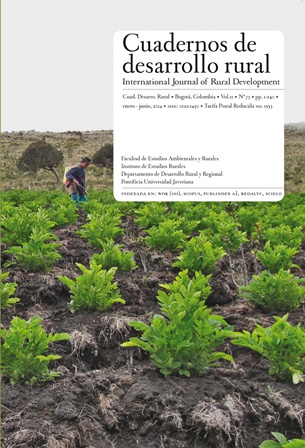Abstract
El artículo pretende, a partir de alguna conceptualización teórica, hacer una descripción de de Liberec como destino turístico, una región relativamente atrasada de la República Checa. Para el análisis propuesto se aplicó un enfoque multidisciplinario, basado en las metodologías de multiplicadores y de encuestas a los visitantes, alcaldes y habitantes, las cuales proporcionaron información acerca de la ejecución de proyectos de desarrollo financiados por la Unión Europea y la percepción de los agentes locales con respecto a estos. Se corroboró el papel del turismo en el desarrollo económico de la región y la necesidad de potenciar los atractivos turísticos de Liberec en el marco de una explotación económica sustentable, que haga partícipe a los agentes locales de los beneficios del turismo cultural rural.Cuadernos de Desarrollo Ruralis registered under a Creative Commons Attribution 4.0 International Public License. Thus, this work may be reproduced, distributed, and publicly shared in digital format, as long as the names of the authors and Pontificia Universidad Javeriana are acknowledged. Others are allowed to quote, adapt, transform, auto-archive, republish, and create based on this material, for any purpose (even commercial ones), provided the authorship is duly acknowledged, a link to the original work is provided, and it is specified if changes have been made. Pontificia Universidad Javeriana does not hold the rights of published works and the authors are solely responsible for the contents of their works; they keep the moral, intellectual, privacy, and publicity rights.
Approving the intervention of the work (review, copy-editing, translation, layout) and the following outreach, are granted through an use license and not through an assignment of rights. This means the journal and Pontificia Universidad Javeriana cannot be held responsible for any ethical malpractice by the authors. As a consequence of the protection granted by the use license, the journal is not required to publish recantations or modify information already published, unless the errata stems from the editorial management process. Publishing contents in this journal does not generate royalties for contributors.


